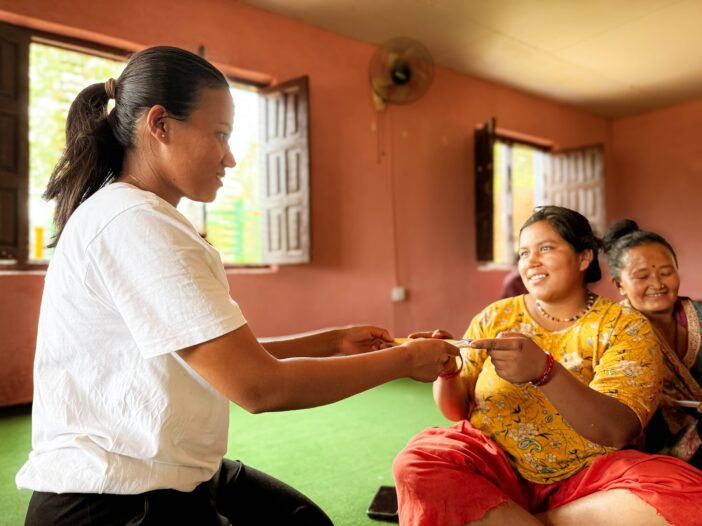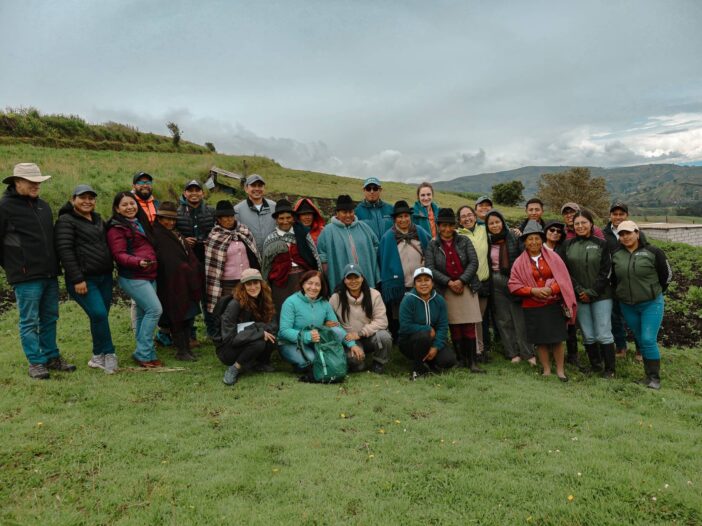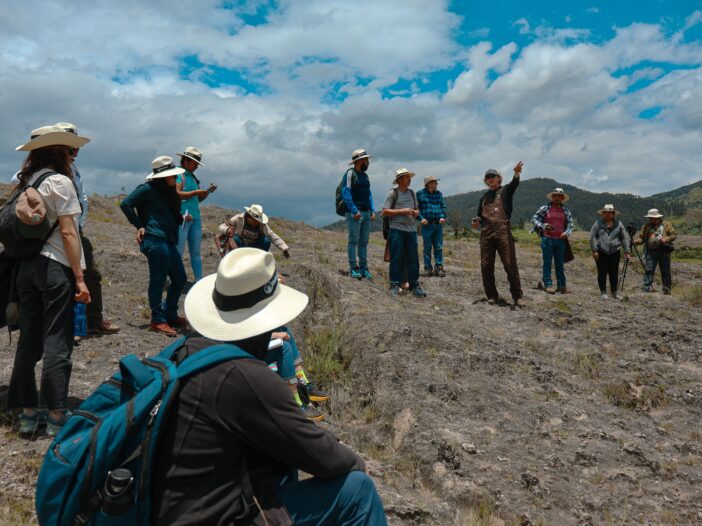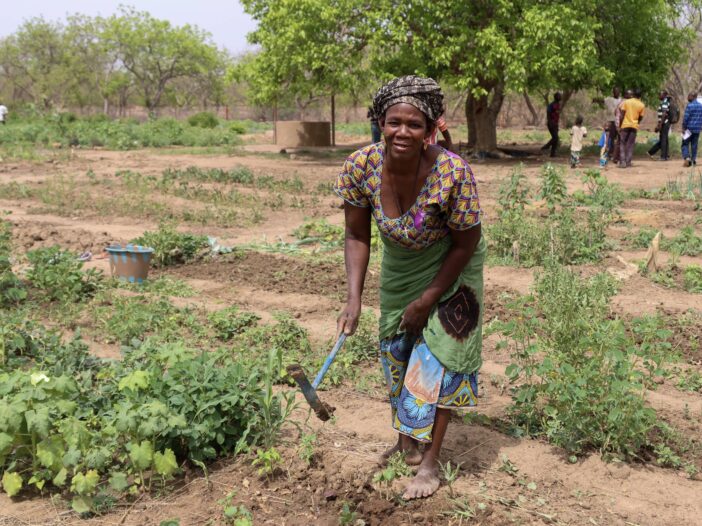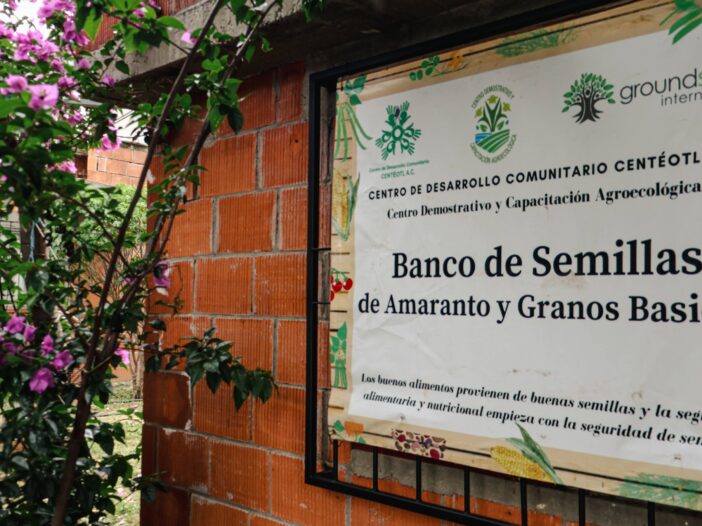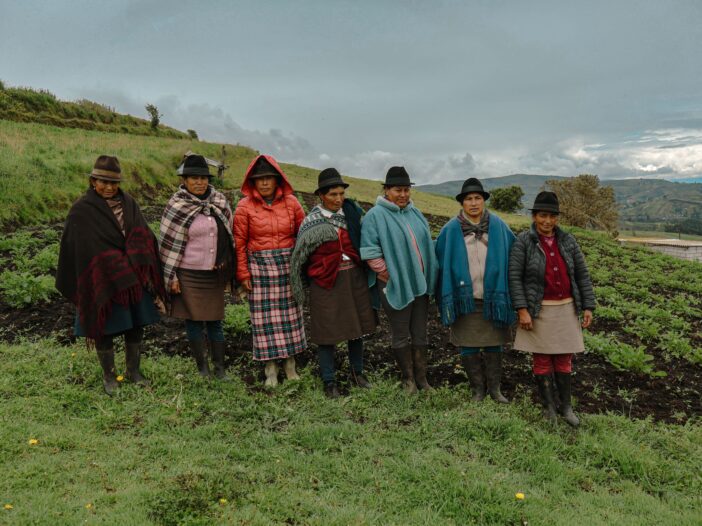Groundswell International is proud to announce a new partnership with Tribhuvan University in Kathmandu, Nepal, to advance natural farming and agroecology in Nepal through collaborative research, education, and field-based learning. This partnership is a promising step forward for sustainable agriculture in South Asia, deepening academic-practitioner collaboration, equipping the next generation of food systems leaders, and strengthening climate-resilient food systems rooted in ecological … [Read more...] about Strengthening Agroecology in Nepal: A New Partnership Between Groundswell International and Tribhuvan University
Agroecology
Agroecology in Latin America & the Caribbean: Learnings from the 2025 Regional Conference
This blog was originally written in Spanish. Read it here. From March 24 to 28, 2025, Groundswell International’s partner organizations across Latin America and the Caribbean (LAC) gathered in Ecuador for the 2025 Regional Conference. Representatives from Guatemala, Mexico, Honduras, Haiti, and Ecuador came together for five days of hands-on exchanges, reflection, and strategy. Through field visits, shared learning, and collective planning, they deepened regional collaboration to strengthen … [Read more...] about Agroecology in Latin America & the Caribbean: Learnings from the 2025 Regional Conference
Fortaleciendo agroecología en América Latina y el Caribe: Lo que nos dejó la Conferencia Regional de 2025
Entre el 24 y el 28 de marzo de 2025, organizaciones socias de Groundswell International en América Latina y el Caribe (LAC) se reunieron en Ecuador para participar en la Conferencia Regional LAC. El encuentro convocó a representantes de Guatemala, México, Honduras, Haití y Ecuador, quienes, a través de recorridos, intercambios y ejercicios colectivos, compartieron aprendizajes y fortalecieron el trabajo en red que vienen desarrollando en sus territorios. La agenda combinó visitas a experiencias … [Read more...] about Fortaleciendo agroecología en América Latina y el Caribe: Lo que nos dejó la Conferencia Regional de 2025
Partner Impact: Sahel Eco Empowering Farmers and Driving Agroecology in Mali
In 2024, our partner Sahel Eco helped drive a farmer-led transition to agroecology in Mali across the Ségou region. Working closely with local communities, they supported efforts to restore degraded land, strengthen food sovereignty, create spaces for women to lead powerful initiatives, and offer young people tangible, hopeful alternatives for a more secure future. The Sahelian context The Sahel is one of the poorest regions of the world. Stretching across Burkina Faso, Chad, Mali, … [Read more...] about Partner Impact: Sahel Eco Empowering Farmers and Driving Agroecology in Mali
Agroecology Building Community Resilience Amid Climate Crisis in Latin America & the Caribbean
In 2024, communities across Haiti, Honduras, Guatemala, Ecuador, and Mexico endured a convergence of crises. Climate extremes collided with social, economic, and political instability, threatening lives and deepening the fragility of rural livelihoods across Latin America and the Caribbean. Climate change is no longer a distant threat but a daily reality. Droughts, floods, heatwaves, and storms are hitting harder and more often. In Honduras, communities endured unprecedented heat in 2024, … [Read more...] about Agroecology Building Community Resilience Amid Climate Crisis in Latin America & the Caribbean
Saving Andean Potatoes: How Farmers Are Fighting Crop Disease like Punta Morada with Agroecology
By Rebecca Wolff On our recent field visit to the provinces of Cotopaxi and Chimborazo, with our partner EkoRural, potatoes were everywhere — in a steaming bowl of soup at lunch, and flowering across the rolling hillsides in Mulallilo. This was very different to my life back home in Vermont. Potatoes are always a side dish, never the star of a meal, and they are often labeled as just a starchy food. Yet, potatoes are nutritious, high in vitamin C, and the more colorful and pigmented the … [Read more...] about Saving Andean Potatoes: How Farmers Are Fighting Crop Disease like Punta Morada with Agroecology

